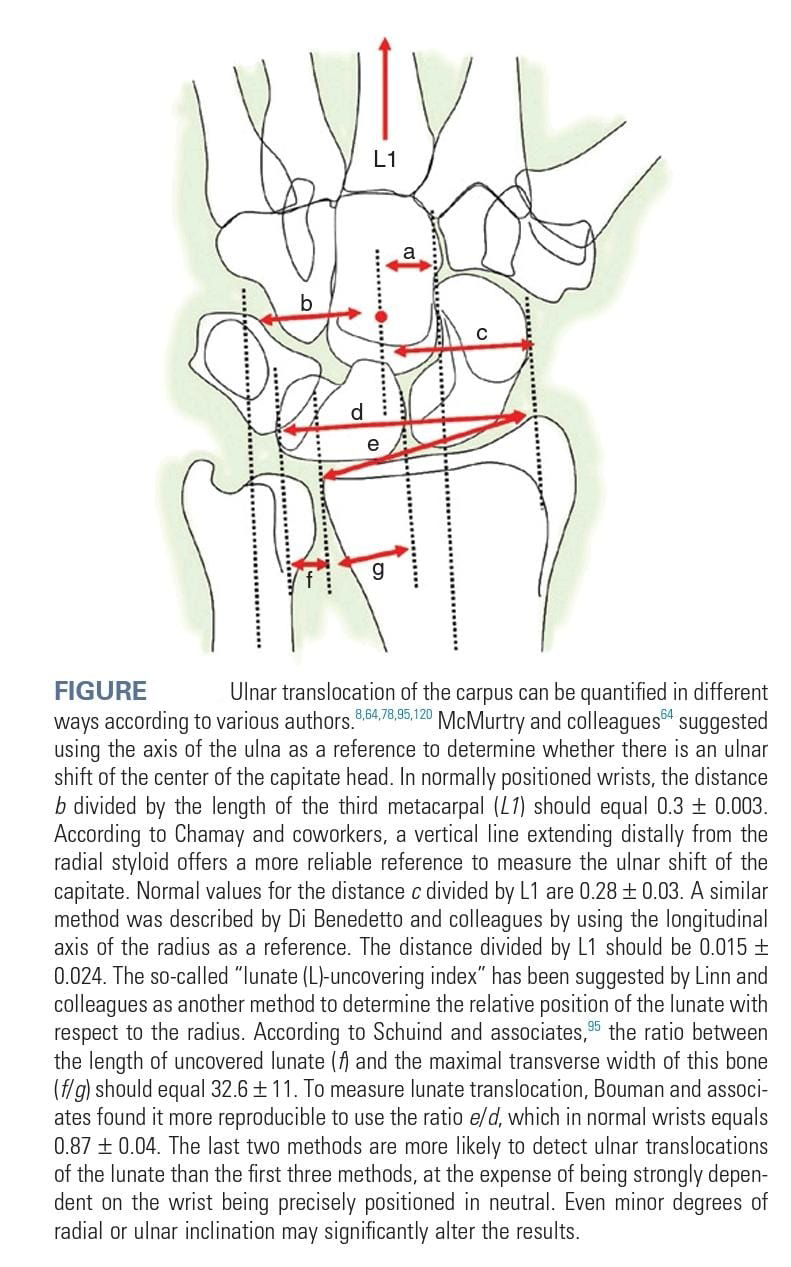▪︎ The following are the most frequently used measurements to define carpal bone alignment-
1) LC angle : This is helpful to quantify midcarpal misalignment.
• A normal LC angle should be 0 ± 15 degrees with the wrist in neutral .
2) SL angle : one of the major determinants of SL dissociation.
• Normal values range from 30 to 60 degrees (average, 47 degrees).
•Although angles greater than 80 degrees indicate SL ligament disruption, lower readings do not rule out this pathology. Values less than 30 degrees are not unusual for patients with STT joint osteoarthritis.
3) RL angle : This gives objective evidence of the dorsal or palmar tilt of the lunate.
•The normal RL angle should be 0 ± 15 degrees.
4) Ulnar Variance : Ulnar variance is usually measured on standard PA radiographs, although lateral radiographic projections also offer very accurate readings.
• When the ulna is shorter than the radius, the ulnar variance is negative, and when longer, it is positive.
5) Carpal Height Ratio : This is another parameter in the evaluation of carpal collapse.
6) Ulnar translocation ratio : In some instability conditions, there is an ulnar shift of the carpal bones. The amount of translocation can be quantified using a variety of techniques.
Very commonly used technique measures the perpendicular distance from the center of the head of the capitate to a line from the radial styloid, which extends distally and parallel to the longitudinal axis of the radius. The carpal translocation ratio (calculated as the ratio of this distance to the length of the third metacarpal) in normal wrists is 0.28 ± 0.03.












No comments:
Post a Comment